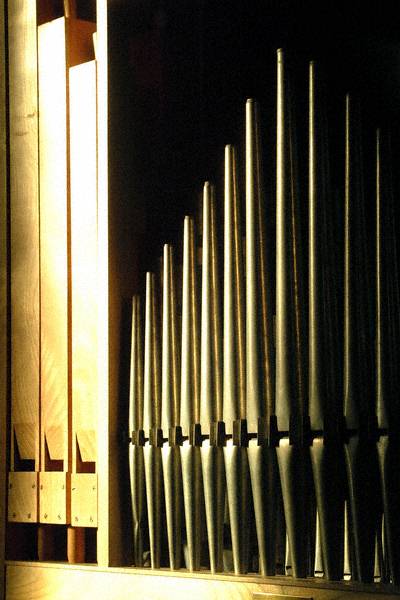

The Basilica of Saint James in Algemesí has an intense liturgical activity with respect to celebrations accompanied with liturgical songs and the participation of the faithful people.
They are important celebrations, following the order of the liturgical year: Advent time, in which in Prima Dominica is celebrated a mass with Gregorian songs. This liturgical time is paired to the traditional “Novena de Guitarretes”, which has great participation and is well instituted in popular live. In these celebrations singing is a very important element. The first important group of celebrations are: the so called “Missa del Gall”, the Holly Family celebration, Saint Mary celebration in the first day of the year and the Epiphany celebration. This block of celebrations is closed with a religious concert in which is played the Messiah by G. F. Haendel in vernacular language since six years ago.
During Lent, beginning in Ash Wednesday, with a great participation of the faithful people in the enthronization of the Patron Saint of the town: The Holy Christ of the Agony. Celebrations in the Holy Week are, without any doubt, the most important moment of the liturgical year. They are accompanied with the Sacral Concert by the Schola Cantorum d’Algemesí and the Processions of the Brotherhoods.
The Palm Sunday and the Sacral Triduum celebrations have great solemnity and high participation. In them music, performed by Schola Cantorum, has an important role in the Holy Thursday, the Holy Friday and the Easter Vigil celebrations.
In Easter time we have the first Holy Communions and all the celebrations of that time: disabled people communion, Saint Vicent Ferrer, the Ascension day (with a mass sung with Gregorian songs), Pentecost (with a lot of confirmations), Trinity and, in a special manner, Corpus. All of them are celebrated with great dignity.
After summer we return with the “Novena” to the Mother of God in the Encounter Chapel, for the Main Feast. In this time, it is important to emphasize the following liturgical celebrations: First Vespers and the Great Mass, both with the participation of the Schola Cantorum and all the faithful people, apart from the famous processions of great popular participation.
Liturgical year is closed with the All Saints’ and All Souls’ days. They both have a big and fervent participation (with a mass with Gregorian songs).
Moreover, there are a great number of devout exercises (months of May, of the Rosary, of the Jesus Heart) and Eucharistic celebrations which count always on the enthusiastic participation of “Adoración Nocturna” and other faithful people.
Masses in each Sunday are celebrated with songs and accompanied by the organ, at least in three of them. Diary masses are also celebrated with songs, but usually without organ accompany.
With respect to the songs repertoire, it has been published a song book in which are collected 288 liturgical songs which bit by bit are renewing the songs sang by the faithful people.
As we have said before, the group of Gregorian singers participate in five celebrations during the year. Following the norms contracted by having the title of Minor Basilica, perform Common and Appropriate liturgy for each celebration sung in Gregorian in Latin language. The faithful people know and sing four masses in Gregorian (the so called de Angelis, Orbis factor, Advent and Lent, and Brevis), thanks to Mn Vicent Igual, the last organist of Saint Jaume.
For the Sunday masses, the parish has two organists who accompany the singing in three of them and a group of players for the Saturday mass. We have said before, Schola Cantorum sing in the main feasts: “Missa del Gall”, Sacral Triduum and Mother of God. In the “Novena de Guitarretes”, a lot of amateur players meets to play in the celebrations. They participate in the dawn celebrations with interest and devotion.
This approximation to liturgy in the parish of Saint James leaves very clear the necessity of a new organ to face up to so much activity. In the main feasts, the Chapel Master uses the orchestra of the Schola Cantorum, not only to give solemnity and a different flavour to celebrations, but because of the actual state of the organ which can not face the most primary needs.
For the usual concerts performed in the temple by the Schola, they use a positive organ (owned by this group), because they can not use the main organ. With respect to organ concerts, it has not been performed any one since long time ago. Only organists who have played it know what painful is to accompany singing.
Diego Ramon i Lluch